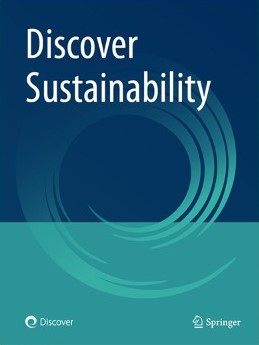University|05-09-2024
Call for papers: The Use of the Metaverse to Advance Sustainable Development Goals
The metaverse is the current trend in the tech world. Metaverse technology was first mentioned in Stephenson’s 1992 novel, and it is a three-dimensional, virtual environment that mimics the real world (Dwivedi et al., 2022). The world of the metaverse enables immersive experiences for users that are similar to experiences in real life. Moreover, investments in such technology are expected to reach $20.9 billion in 2025 and $13 trillion in 2030 (Barrera & Shah, 2023). Many countries have begun to include the virtual reality industry in national strategies, as the metaverse is a social, economic, and environmental system that enables users and companies to participate and interact in virtual experiences (Dwivedi et al., 2023). Business models have entered the metaverse strongly, and competition has increased between companies to take advantage of this emerging technology to solve problems and provide the possibility of inspecting products by customers virtually, simulating various problems of factories, and many services that provide enormous potential to reduce waste of resources and mitigate emissions (Arpaci et al., 2022). Within the context of the metaverse, the physical and digital aspects come together and provide insight and environmental benefits that reduce greenhouse gas emissions and global warming by up to 0.02 degrees Celsius (Pellegrino et al., 2023).
Industry 4.0 has become an established path to the sustainability of the business world. Industry 4.0 has been absorbed into various fields, such as education, supply chains, human resource management, and sustainability. Recently, sustainability has become an essential part of various industries, but the investigation revealed that Industry 4.0 is not considered an ideal and correct framework for sustaining life on Earth. Furthermore, Industry 5.0 is considered a modern wave of technical innovation directed at sustaining life on Earth. Many studies on industries 4.0 and 5.0 have claimed that technical aspects improve economic, environmental and social indicators (Piccarozzi et al., 2024). For example, the metaverse is a new trend in the business world for business sustainability, bringing users, companies, citizens, and scientists closer together. The world of the metaverse includes virtual reality, non-fungible tokens, and augmented reality (Yao et al., 2024). Certainly, the topic of the metaverse is effective in drawing a bright future for current generations and preserving future generations. Although authors like (Jauhiainen et al., 2023; Lee, 2021) have summarized previous literature on sustainability and the metaverse, the lack of more decisive evidence deems this Topical Collection a hot spot worth exploring. This Topical Collection aims to address the major benefits arising from recent developments in the metaverse and other advanced AI-driven technologies.
This Topical Collection complements the previous literature by presenting manuscripts that focus on linear and non-linear issues in business. We invite submissions that draw on theoretical lenses from a variety of disciplines (e.g., social commerce, sociology, organizational studies, management, and science). Theoretical papers are welcome, as are empirical manuscripts, which use any methodological approach (qualitative, quantitative, and mixed methods). This Topical Collection mainly aims to create a research platform for researchers, policymakers, and practitioners to investigate the potential of the Metaverse in moving sustainability ideas forward. Through examining case studies, theoretical frameworks, empirical research, and innovative applications, we seek to produce understandings to be considered in developing future strategies and initiatives targeted at utilizing the Metaverse for the common benefit of humans and the planet.
More information: https://link.springer.com/collections/hgebabehbb.




